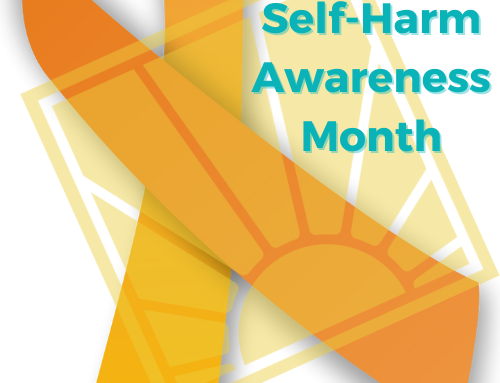Despite dire statistics regarding teen suicide, there is much that can be done to reduce suicide risk and to treat the causes of suicidal impulses. Suicide prevention experts emphasize that intense suicidal intent is generally temporary, will pass, and its causes can be effectively treated. It is important to remind a suicidal teen that her life is valuable, that there is hope, and that these feelings will pass and their causes can be treated.
Vigilant, educated parents, teachers, and friends can do much to mitigate the risk of adolescent suicide by knowing the signs and by proactively engaging both the suicidal teen and the proper outside resources. It is important to remember, and to remind the suicidal teen, that the causes of suicidal feelings usually stem from diagnosable issues that can be effectively treated, either through therapy, medication, or both. The use of crisis interventions such as hospitalizations, in-patient treatment programs, and suicide hotlines can keep suicidal ideation from becoming a suicide attempt, opening the door to long-term treatment and healing.
Danger Signs
Particularly for young people with risk factors such as a family history of suicide or depression, a diagnosed emotional disorder, or drug and alcohol abuse, the following signs may indicate suicide risk.
- Extreme hostility
- Feelings of hopelessness or sadness
- Exaggerated irritability
- Risk taking activities
- Declining school performance
- Changes in eating habits and sleep patterns
- Dramatic changes in personality
- Verbalization of a suicide plan or any detailed consideration of suicide
- Verbalizations that he/she wants to die; hints that he/she might not be around in the future, e.g. “if something happens to me..”–” or “I won’t be a problem much longer..”
- Running away
- A previous suicide attempt
- Disheveled appearance or lapse in hygiene
- Participation in social networks, peer groups, or media that glorify or romanticize suicide
- Withdrawal, loss of interest in normal activities, loss of concentration/focus, and other signs of depression
- Giving away treasured possessions or otherwise “putting affairs in order”
- Sudden cheering of mood after a period of depression (a decision to commit suicide can produce temporary relief of depressive symptoms; also, a reduction in depressive symptoms can provide the energy to actually act on suicidal plans)
- Bizarre thoughts or hallucinations
- Writing suicide notes
A supportive, caring connection with your child can be critical for picking up on these signs and for being viewed as a resource by your child. Don’t be afraid to ask clear questions such as “are you feeling like harming yourself,” or “do you have any sort of plan to hurt yourself?” Such questions, when delivered in a spirit of care, not of panic or judgment, can create an opening to discuss suicidal feelings. Take any affirmative answer very seriously and take immediate action to intervene.
How to Intervene
As mentioned above, maintaining a trusting, supportive relationship with your child has great value for assessing risk, preventing suicidal behaviors, and providing the right resources at the right time. Taking suicidal thoughts and feelings seriously is critical; it’s easy to gloss over suicidal references, threats, and other warning signs. If you suspect your child is struggling with suicidal feelings, take immediate measures to secure any items that might create more risk, such as medications and firearms. Be curious, communicate freely and openly, ask questions without badgering, offer support, and express your love. Let your child know that she is valued and cared for, and that her pain might feel inescapable, but that it is not. Things will get better and there is hope. It is difficult for the suicidal person to believe that there is any escape from what they are feeling right now.
Seek the help of a medical and/or mental health professional to diagnose and treat the underlying issues driving your child’s thoughts of suicide. Treatment might include medication, therapy, and/or residential care. Family therapy can often be helpful because it can uncover root causes of depression and despair that the whole family must work on together in order for healing to occur. If family therapy is recommended, participate. Meanwhile, do your own homework to learn as much as you can about the causes, prevention, and treatment of suicidal impulses. Joining a parent support group can help you develop your own resources and instincts for the detection of suicidal tendencies and for suicide prevention. Educate your child about resources such as suicide hotlines and make yourself available as well.
If you suspect that your teen is at immediate risk of a suicide attempt, do not leave her. If she has thought out or made a specific plan to kill herself, or otherwise articulates or shows intent, take her immediately to the nearest emergency room or psychiatric hospital or call 911. Remember that even deeply suicidal individuals are typically ambivalent about dying. You can help. A brief hospitalization can create the immediate safety required to make it through an intensive bout of suicidal feelings. Upon discharge, however, further treatment should be sought so that root causes “whether biological or psychological or both” can be addressed for long term safety and healing.
We can help:
For additional information or admissions, please call us toll free at 866-754-4807.

